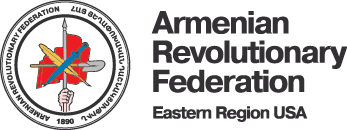‘The End of Syria’s Multiculturalism?’: Panel at CUNY to Consider the State of Syria’s Minorities
NEW YORK—On Fri., April 8, the Middle Eastern and Middle Eastern American Center at the Graduate Center of City University of New York (CUNY) will hold a discussion on the current situation in Syria as it affects the country’s minority communities. The panel will feature activists and scholars from minority backgrounds. The panelists are Harout Ekmanian, Nicholas Al-Jeloo, and Dlshad Othman.
Ethnic and religious groups lived in the Levant for centuries, but the civil war in Syria had a devastating effect on these communities. A multicultural society is disappearing and new lines of division are being drawn in the region, forcing populations into exile, displacement, dispossession, and trauma. Three young Syrian men from minority communities will discuss the power dynamics in Syria after 2011 and the issues of identity and dominance in the region. The event begins at 6:30 p.m., in room 9205 of the Graduate Center, located at 365 Fifth Ave., at 34th St., New York.
Ekmanian is a journalist, trained as a lawyer in Aleppo. He was a fellow at the Institute for the Study of Human Rights at Columbia University in 2015. He has worked in media and development in the Republic of Armenia in various capacities at both the Civilitas Foundation and Hetq Online. His pieces are featured in Voice of America, Tagesspiegel, O Globo, Near East Quarterly, and others. He is a regular contributor to the Armenian Weekly.
Al-Jeloo lectures at the School of Historical and Philosophical Studies at the University of Melbourne, specializing in Syriac studies. He completed his doctoral dissertation at the University of Sydney in 2013, focusing on the socio-cultural history and the heritage of ethnic Assyrians in Iran.
Othman is a Kurdish-Syrian activist and IT engineer who provides Syrians with digital security resources and assistance so that they can utilize online communications and advocacy freely and securely in spite of increased online government repression in the form of censorship, sophisticated cyber-attacks, and intense surveillance.
Source: Armenian Weekly Mid-Atlantic
